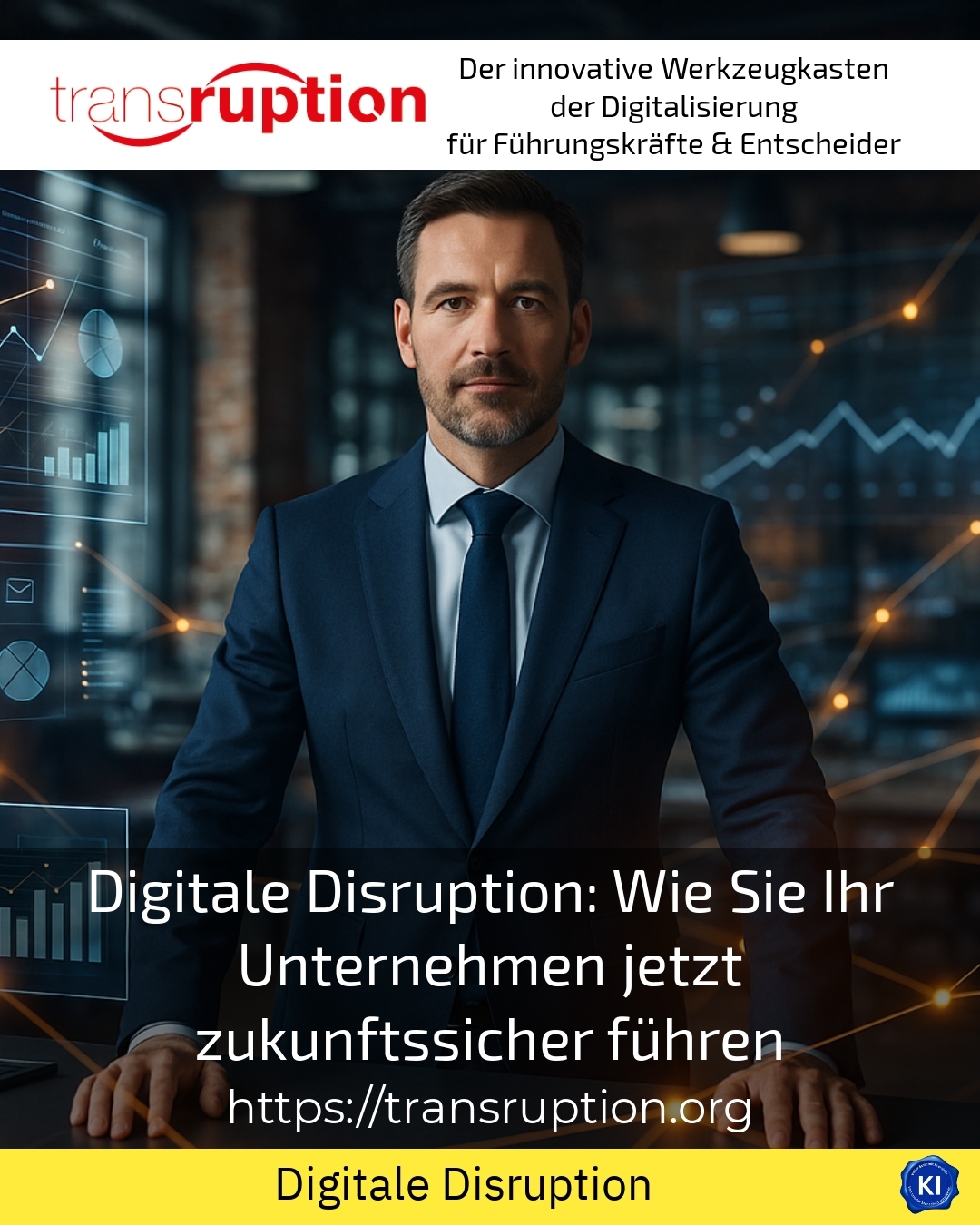Digital disruption is changing the way companies operate and markets function. It is creating new business models and calling established structures into question. Many clients come to me because they sense that something is fundamentally changing. They are looking for ideas on how to deal with these developments. Digital disruption is not a one-off event, but an ongoing process that challenges companies to remain flexible and continue to develop.
Digital disruption: What does this mean for your company?
Digital disruption describes a profound change that is triggered by digital technologies. It not only affects individual processes, but entire industries. Companies are faced with the task of reinventing themselves in order to remain competitive. Clients often report that they feel uncertainty when they think about new technologies. They ask themselves how they can prepare for the changes.
One example is the music industry. CDs used to be sold, but now most people use streaming services. Platforms such as Spotify have greatly reduced the demand for physical sound carriers. There are also changes in logistics. Companies such as PTS Logistics rely on augmented reality to optimise processes. Examples like these show that digital disruption is not only taking place in the IT sector, but can be felt in many areas.
How do you recognise digital disruption?
Digital disruption often manifests itself in new business models that replace existing products or services. Another example is the accommodation industry. Platforms such as Airbnb have challenged the traditional hotel industry. Changes are also taking place in the manufacturing industry. Companies are using digital twins to simulate and optimise production processes.
Another example is the retail sector. Goods used to be sold in shops, but now many people buy online. Companies such as IKEA have responded by introducing online marketplaces for assembly and removal services. Changes are also taking place in the insurance industry. Digital platforms are making traditional CRM systems superfluous. These examples show that digital disruption can be felt in many areas.
Digital disruption in customer service
There are many examples of digital disruption in customer service. AI-supported chatbots are largely replacing human support. Self-service portals enable customers to resolve their concerns themselves. Data-driven sales systems are also changing the way companies interact with their customers.
Another example is the automotive industry. Cars used to be sold in shops, but today many people buy them online. Companies are using digital platforms to optimise the sales process. There are also changes in the healthcare industry. Digital platforms enable patients to manage their own data. These examples show that digital disruption can also be felt in customer service.
How can your company respond to digital disruption?
Companies can respond to digital disruption by being open to innovation and creating space for their own innovations. Structural changes are often necessary in order to remain flexible. Companies should regularly analyse how digital technologies are changing existing industries and products.
Another example is the manufacturing industry. Companies are using digital twins to simulate and optimise production processes. Changes are also taking place in logistics. Companies such as PTS Logistics rely on augmented reality to optimise processes. These examples show that companies can respond to digital disruption by utilising new technologies.
Another example is the insurance industry. Digital platforms are making traditional CRM systems superfluous. There are also changes in the healthcare industry. Digital platforms enable patients to manage their own data. These examples show that companies can respond to digital disruption by utilising new technologies.
transruptions-Coaching supports companies in projects related to digital disruption. We provide ideas on how companies can prepare for the changes. Clients often report that they gain new perspectives and are able to implement concrete steps thanks to our support.
BEST PRACTICE at the customer (name hidden due to NDA contract) A medium-sized company from the logistics sector was looking for ways to digitalise its processes. Together, we carried out a digital readiness check and developed specific recommendations for action. As a result, the company introduced augmented reality in project logistics and was able to significantly increase its competitiveness. Employees report greater efficiency and satisfaction.
My analysis
Digital disruption is an ongoing process that challenges companies to remain flexible and continuously evolve. Companies can respond to digital disruption by being open to innovation and creating space for their own innovations. Structural changes are often necessary in order to remain flexible. Companies should regularly analyse how digital technologies are changing existing industries and products. transruptions-Coaching supports companies in projects relating to digital disruption and provides impetus on how companies can prepare for the changes.
Further links from the text above:
Digital disruption - definition and examples
5 inspiring examples of innovative digital transformation
Digital disruption: How decision-makers secure the future
For more information and if you have any questions, please contact Contact us or read more blog posts on the topic TRANSRUPTION here.
















